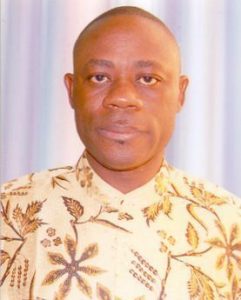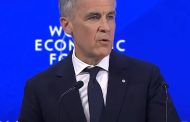
The author
By Adagbo Onoja
The misery index for the average Nigerian has, irrespective of what official statistics might be saying, been so high in the past decade as to compel attention to the theory and practice of power. Power as that which determines what counts in the last instance is not very well understood beyond its coercive, structuralist and institutional forms in Nigeria. And much of what we teach in the universities does not pay the required attention to the issue of which variables best create and sustains power. A rich history of anti-imperialism and anti-authoritarianism through conceptual warfare and street actions has not explored the dimension of discursive power in its most insidious capability as should have been the case even as Nigerian radicals in particular marvel at its outcomes as they come in particular from Latin America. Lula da Silva has just staged a comeback to power in an electoral war that was substantially a framing war on the social media.
Arising from the re-radicalising impact of the deconstructive approach to the study of Hegemony on the eve of the unraveling of the communist block in the 1990s, the relative failure to more systematically incorporate and deploy the discursive approach to power to more devastating effect may be said to lie more with the radical establishment or the rump of that in Nigeria. But the larger society is no less guilty, especially if we wonder, for instance, what the Research and Statistics Department of the Ministry of Foreign Affairs or its Public Relations and Cultural Unit, (PRCU) does with images, metaphors, idioms, icons and, in fact, the creative and cultural industries and their outputs when it comes to strategies for enacting Nigeria on a global scale. It doesn’t seem that is part of the diplomatic imagination of the Nigerian foreign policy establishment at the moment. And certainly not of the political leaders, most of whom come to office with no orientation of foreign policy beyond colorful presidential missions and receiving credential presenting envoys.
It must be against this background that the ‘silence’ which has greeted Bolaji Akinyemi’s 2022 NIIA Distinguished Lecture can be understood. Let us grant right away that Akinyemi’s intervention via the 2022 NIIA Distinguished Lecture was not a reenactment of Halford Mackinder. Those who may not have heard of Mackinder may be at a loss at this point. They would have to read about him because we cannot take that on board this piece. Suffice it to say it is not possible to read International Relations in general and Geopolitics in particular without coming across him as a key figure. He remains a debate in geopolitics or even in broader International Relations, much of it just because of a single lecture he gave in 1904 at Oxford and how what he said there has continued to frame international politics right up to this moment, including the on-going war in Ukraine. Akinyemi did not, at the NIIA Lecture, offer Africa anything as precise as what Mackinder put on the table for the British power elite in terms of how to overwhelm the world they were confronting around 1904 as a naval power. It is a bit surprising why Akinyemi ‘failed’ the test this time when, at a less challenging time for the African continent, he had come up with very farsighted options. His suggestion that Nigeria should have developed the Atomic bomb in the years of prosperity is a farsighted intervention if read in terms of what a degraded category such as Africa needed to come out of her own ‘centuries of humiliation’. Whether the bomb would have resolved or complicated the ‘African condition’ is a different matter because there is no science that can tell us that Nigeria’s possession of the bomb may not be the condition of possibility for confronting the poverty dimension of the ‘African condition’, depending on how the very idea of Atomic bomb at the time Akinyemi was thinking of it for Nigeria was articulated among the parties to such a ‘conversation’. In other words, Akinyemi was absolutely in order in making that case. His standpoint breached no ethical or whatever principles of peaceful co-existence. However, the world has moved from that spot.

Prof Akinyemi, a veteran of provocative interventions in (Nigerian) foreign policy
A second example of Akinyemi’s policy relevant intervention or farsightedness is his Farewell to Policy speech or lecture or whatever we call it. There is nothing new to say about that text beyond suggesting that Nigeria needs to ensure that, if nothing else, it is one of the few documents Atiku Abubakar, Bola Ahmed Tinubu and Peter Obi are made to read themselves, away from Executive Summary or briefs by some aides. It is not necessary or important for any of the three presidential candidates to believe in Akinyemi’s argument in that lecture. It is only important for them to be aware that there is such an argument and an important input into the way forward which any president would need.
Against this background, it is a bit puzzling why Akinyemi didn’t put a far more explosive proposition on the table at a time Nigeria is in a disturbing disarray under a combination of domestic and external factors and forces, creating so much misery and tension in the African country which categorically defines its essence as the African subjectivity. Sometimes, it gets more interesting when a certain contention comes not from a radical agitator but from a settled conservative, particularly that set of Nigerian scholars who went to prestigious universities in the Western world as Oxford, Cambridge, Harvard, Stanford, Yale, Princeton and so on and can be said to be educated beyond the certificates. Given what they did under Gowon, (the Oxford trained super perm secs, the Adedejis etc) and what a different set did under IBB, they could have taken Nigeria somewhere if there was a Nyerere or an Nkrumah. We probably need to do more research on why Akinyemi delivered what was an obviously great ‘Survey of World Order Dynamics’ suitable for a postgraduate class in IRs but which offers no answers on ‘what’s to be done’. Hanging Africa overcoming its historical and unique existential challenges on the rebirth of Nigeria is a journey in the direction of farsightedness from an Akinyemi but then only for Akinyemi to stop at its restatement in spite of his references to the extra-domestic sources of some of Nigeria’s current travails. What can a domestically fragmented and poorly led Nigeria do to heal itself in order to be able to serve Africa so that the continent can be at the negotiation of the ‘new’ world order’ which is already unfolding in the usually turbulent manner new world orders unfold, historically? There is a saying among the Idoma and, I am sure, among other Nigerian cultural groups too, that elders see the world through the corner of their eyes. And because they do so rather than frontally, they tend to see more and because they see more, they tend to speak less. This is my only way of framing Akinyemi’s withholding of what’s to be done, a debt I am sure he will pay at the next high profile platform he or any of the other intellectuals in that club appear soon.

Akinyemi is right that Nigeria has been absent in the world although South Africa’s membership of BRICS wasn’t a product of any serious planning but chance meeting, meaning the need for a more thorough assessment of Obasanjo’s foreign policy, the most active since 1999
But this is how far we can go in talking about Akinyemi’s outing at the 2022 NIIA Lecture in terms of what it offered or didn’t offer. That is to say that it is sustainable to rate it lower or higher than Mackinder’s, for example, or what he, (Akinyemi), has done previously. What is not sustainable is to declare the speech good or bad. It may not rate great enough in relation to something else but its goodness or badness (if this word exists) is a completely different thing. Akinyemi’s words at the lecture in question will NEVER have the same meaning for everyone. Like every other speeches, lectures, argument, idioms, images and so on, it embodies its protagonists and antagonists and siddon-lookers. So, unless Nigeria which is its chief protagonist goes all out to give it the slant that serves its global interests and then reiterate the lecture in pursuit of those interests, the lecture will die an unnatural death, the same way that the massive intellectual industry of seminars, workshops, conferences and online conversations have amounted to nothing more than what people consume and go to sleep and nothing more. No lecture is inherently great or otherwise in itself outside of how it is contested and represented by its protagonists and antagonists for their different reasons.
This is the point about the deficient politics of articulation raised against centres of power such as the radical and the diplomatic establishments earlier in this piece which are still lost in everyday metaphysics of true/false or good/bad rather than the pragmatic construction of meaning. That is a bad power game in a world in which a multitude of voices are competing, each set of voices selling a particular story line whose value will be determined by how much it shapes the consensus that emerges on the major issues in contention. In other words, a tree which falls in the forest is a real event but will never become an issue if nobody frames the reality, either as a result of the age of the tree or a powerful wind or a reckless act of logging. It is only in the context of these plausible representations of the falling of the tree that it becomes a reality because one out of the narratives will now determine how the event is related to. If it fell because of old age, nobody will do anything beyond those on whose plot it fell clearing the log. It will be different if people involved in logging cut it down because climate change warriors will then be up in arms strengthening the case against logging.
That is how articulation rather than reason or nature creates reality and which makes representational practices such as theories, concepts, images, metaphors and visuals instruments to be discursive texts embodying power in them. If we want to be a powerful nation, we must then learn the systematic mastery of The power of words in International Relations, that being the title of University of Sydney’s Charlotte Epstein’s book on the subject matter. Power is more than the coercive, structural and institutional stuff we over-emphasise in traditional International Relations or foreign policy analysis. The tragedy is that it is people like Chinua Achebe who laid the foundation for this analysis of power when they said that “Until the lions have their own historians, the history of the hunt will always glorify the hunter”. It was his reckoning with and craving for discursive power that made him take Literature as his weapon, a very early reckoning with discourse as power. Unfortunately, neither Achebe nor anyone else formalized this into a cognitive formation. And today, discourse theory is virtually an alien academic subject in much of black African universities, especially its most radical variant. Not surprisingly, our graduates who end up in the Ministry of Foreign Affairs and state-owned think tanks have nothing to offer in terms of instrumentalising literary works by Nigerian authors, stuff from Nollywood, the rising musical creativity and images or visuals churned out in Nigerian popular culture in the past few decades. Yet, it is, arguably, the most affordable and most disruptive instrument of emancipation.
The author wrote in from the School of International Relations, the University of St Andrews, UK




























